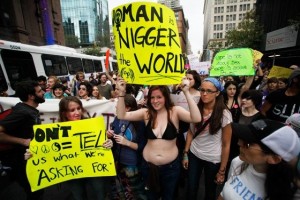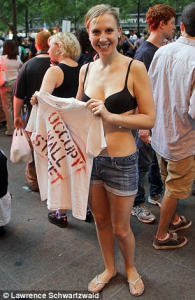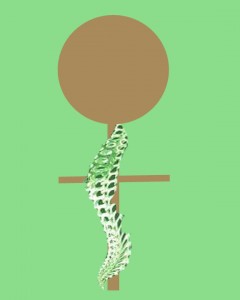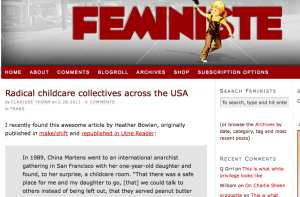There were two rather unexpected events that took place yesterday. If I look closely, I see how these two seemingly different events perfectly illustrate my life and my identity right now.
At two o’clock yesterday, I went for spiritual direction. Spiritual direction is a form of spiritual practice where you typically spend an hour or so with a trained and certified spiritual director to help you more clearly recognize grace, God, and love in your life. The reasons and methods are varied, similar to psychotherapy, but it’s not therapy. It’s like you become your own personal theologian over your own life. You investigate the joys, struggles, and thoughts and process them aloud with a director. They ask questions, dig around, and reflect back what they hear from you. Quite a simple method, yet very few people utilize this form of practice. The last time I went for spiritual direction was nearly a decade ago. My director’s name was John and I still think of that relationship every few months. It was that impactful.
I went to see Fr. Don Cozzens. A prolific writer, a progressive thinker, a graceful challenger to the modern US church, I sat with him for an hour to talk about my relationship between writing and my faith. Specifically, I came to him to talk about this hard stone of fear sitting in my stomach. A fear to write about what I truly want to write about because of my identity as a Catholic. I feel uncertain and off balance. At times I felt unsure how to answer his questions about my identity as a Catholic, as a women of color, as a feminist, as a writer.
He spoke at length about two things: ego and courage.
On one hand the ego of the writer is always pushing. Ego is always afraid of what others think, even when in hiding – which could be mistaken for lack of confidence – but is really about ego. (That took me a while to understand.) But it makes sense. On the other hand, it takes the “chasm of courage” to put yourself out into the world, to open up oneself for criticism and challenge. He remarked, “The challenges you reference – the hierarchy, clericalism, triumphalism, patriarchy of the church – these are big pieces to the block in your writing as you are describing, but I think there is something else. Something that is not church.”
Oh.
Well, I sat with that for a while.
He was kind and smiled warmly, “Forgive my arrogance. I’ve only known you less than an hour and am telling you what to do with your life. But here I go: there is something much deeper than the church you are fearing. Your friend who lost is job because of his progressive beliefs? It goes deeper than that. Your fear of being the Catholic community not understanding you? It goes deeper than that. So just sit with that.”
I did. I sat there.
He ended with what he began, “Write. Come what may.”
Four hours later, I left this priest who wrote controversial books for a living and drove to another college campus. At Kate State, my friend, Daisy Hernandez was giving a talk. The subject of her lecture was on feminism, women of color, sexuality, and Latina experiences. It’s hard to not praise her presentation when she gave a shout out to my work. (Insert any gif of shameless dancing.)
One of the things that caught my attention was how many college students brought up the word “queer” which Daisy used to name her sexual identity. I saw many college students nodding as she spoke and I saw even more wait for her after the lecture, standing there awkwardly, shifting from foot to foot waiting to ask her more about her queer identity. It was a word I am familiar with as many of my friends who date and love and partner with men, women, and gender non conforming people. Queer is a word to me to describe the natural continuum of loving, or being attracted to, or being in relationship, or just plain wanting another person. It’s an everyday word for me. Like “the.”
I thought about how and why I not feel the need to name my sexuality. I stopped identifying as anything several years ago. It was a personal decision I came to after years of examining my life, reflecting with my partner, choosing what felt most right to me. And what felt right was not to use any identifier at all. I didn’t reject anything, I just didn’t find anything that encompassed my experiences.
The decision to un-identify as heterosexual and my decision to not identify with anything else came shortly after an upsetting experience with a group of friends who questioned my life choices. Shortly after I was engaged to my partner, I made a comment that I knew I was ready to commit to one person because I realized what love meant. I didn’t love his gender. I didn’t love his sexuality. I didn’t love parts of him. I just loved him. That totality and consumption of another human through love wasn’t blind to these parts of his identity, it just didn’t stand out that way anymore. The more I understood how I loved him, the more I understood how to love others in general. Gender didn’t matter. I fell in love with a person who happened to be a man. Even with all the socialization, the cultural and religious influences in my life, I came to understand that love, for me, was not contingent upon gender, or sexuality, or labels. I shared with a friend that “it didn’t matter if it was a man or woman. I knew that I could have dated or not dated anyone and I would have been fine. I could have loved anyone. And in realizing that, I knew I was free to love whom I choose. And I chose him.”
In sharing this in an unsafe place, the comment was deduced to a cheap conversation about sexual attraction and dating history. My insight was lost in the torrent of questions if I was gay, straight, queer, bi…or what?
It took a few years to tell that story and I look back and shake my head because I still feel the same way. Why the need for label? Why the desperate grab to smack a word on my forehead so you know how to treat me. Why not just get to know me? Why not get to the know the person I fell in love with?
I fell in love with this person who, at one time, when he was employed as a minister, would dress in his finest suit to attend funerals for people he didn’t even know. Whether the service was overflowing or just a smattering of people in the pews, he put on his best clothes to pay tribute to someone who died. He attended because he believed in the inherent worth of every human that walked the earth. He wore his best suit because he believed that was the least he could do for the one person who came to say goodbye to their brother, father, sister, mother, or spouse.
I have these hazy memories of waking up and seeing him dressing in that black suit and knowing he was on his way to a funeral. “You don’t have to go, you know,” I reminded him. “No one would ever know the difference.” He’d catch my eye in the mirror and flash me a smile that I always found made my heart thunder away, “I’d know. I like going. I want to be there. Someone should, must be there.”
Someone that held that kind of perspective of human life, relationship, and wasn’t afraid to be made vulnerable by the emotionally heavy nature of a funeral is the kind of someone I continue to love to this day. It’s why I chose and continue to choose to build my life with him and why love is the only door I leave unlabeled.
I don’t need it. I know where I’m going.
* * * *
Fr. Donald Cozzens. Ms. Daisy Hernandez. The two faces of Catholic and feminist agitation yesterday. It was quite a day.




